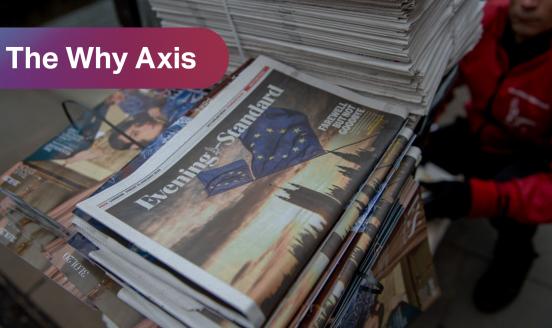The G20 needs to refocus its financial regulatory agenda
The G20 leaders meet again in Toronto on June 26-27, and hopefully will make progress on reform of the International Monetary Fund and other issues of global economic governance. But on one distinctive part of their agenda, financial regulation, achievements so far are less impressive than the initial ambition.
At the first G20 summit in November 2008 in Washington, shortly after the Lehman Brothers collapse, there was much rhetoric, especially from Europeans, in support of “global solutions to global problems.” The implied goal was global harmonization of financial rules to restore financial stability, eliminate regulatory arbitrage (banks shopping around for the most favorable regulations), and ensure fairer competition. Financial regulation represented no fewer than 38 out of that summit’s 47 action items.
Fast forward to the present and most flagship projects are in jeopardy. The Basel Committee’s negotiations on bank capital, leverage, and liquidity standards are proving difficult, and may not be completed this year as planned. Accounting standard-setters are not achieving convergence on key issues, including financial instruments, and have announced that they will miss the mid-2011 deadline set to them by the last G20 summit in Pittsburgh. Individual initiatives, such as the recent German ban on naked short-selling and credit default swaps, stand awkwardly alongside the commitment to global coordination. And the more recently suggested idea of a global banking levy is petering out in the face of unexpectedly strong opposition from Canada and others.
It is too early to call the G20 financial regulatory agenda a failure. But there is an inescapable sense that the vision of global financial harmonization, while certainly appealing, is incompatible with realities. Regulation is politics, and all politics is local. The idea that identical rules could be implemented identically around the world in an area as sensitive as finance remains, for now, a utopia.
To salvage its credibility, the G20 agenda needs to be restructured on the basis of clear first principles. The guiding concern should be better management of cross-border contagion risks, while safeguarding the efficiency of global capital allocation.
Some issues can be largely left to individual jurisdictions, as illustrated by the soon-to-be-adopted US financial reform bill, whose direct international spillover effects are limited. This applies prominently to regulations affecting retail banks, which typically intermediate within a single country, or in the case of continental Europe, within the EU. The Icelandic crisis has shattered the European concept of retail branches, as the home country was incapable of effectively insuring deposits in the UK and Netherlands. The EU must go much further in building a supranational prudential framework if it is to preserve its single banking market, for which the planned creation of a European Banking Authority should be a key milestone. But elsewhere in the world, the standard practice will be locally capitalized and funded subsidiaries even for global banks, as HSBC and others are already believed to be following. In such a model, uniform global prudential standards are desirable, but not indispensable.
Investment banking, however, requires more coordination, as one of its very purposes is to move capital across borders. The obvious alternative to local capitalization and funding is explicit support of local operations from the parent company. This implies enough homogeneity of home country standards to ensure that investment banks from different countries can compete fairly everywhere, and that the most harmful forms of regulatory arbitrage are discouraged. Furthermore, in the case of universal banks, government insurance of retail deposits should not unfairly subsidize investment banking. In this context, global investment banks may be increasingly headquartered in large countries (the Swiss case will be interesting to watch from this perspective); and the competitive effects of the universal banking model may increasingly come under scrutiny, especially as regards internationally active banks. These issues are extraordinarily difficult, and unlikely to be sorted out for several years.
Capital markets, by contrast with banks, benefit enormously from global integration and represent an area where the G20 should arguably be more ambitious than it has been until now, especially as this is an area where the crisis has especially shown the need for more effective regulation and where divergent national initiatives can be particularly counterproductive. A sustainable governance model remains to be found for international accounting standards-setting. For some financial participants that play a limited but crucial role in markets -- such as audit networks, rating agencies, clearing houses and information repositories -- the creation of global supervisors may be necessary even though there is no obvious precedent. Here too, the corresponding policy discussion has barely started, if at all.
The promise of the G20 has been to effectively reregulate global finance while avoiding its fragmentation along national lines. Getting this balance right must be the priority goal of G20 leaders. It will require more pragmatism and focus than has been the case so far.



